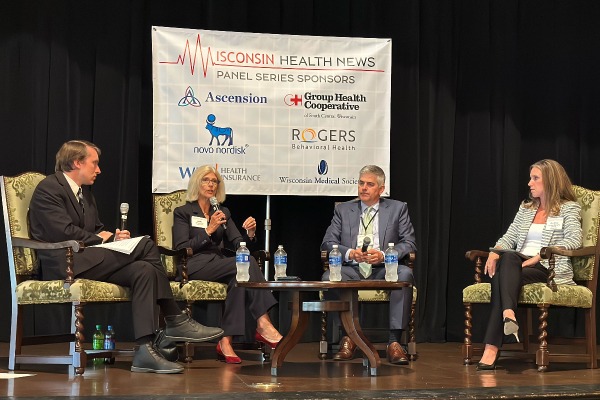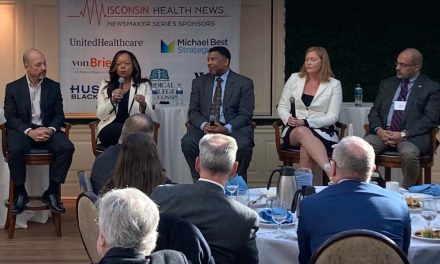
Panel: Finances, workforce challenges prompt health system consolidation

Financial challenges and workforce shortages are driving a surge in healthcare mergers and acquisitions that are likely to continue for years to come, panelists said at a Wisconsin Health News event in Milwaukee on Tuesday.
That’s especially true in Wisconsin, where several of the state’s largest health systems have pursued partnerships in recent years.
“In Wisconsin, we actually are seeing less and less health systems because we are consolidating to a great degree,” said Cathy Jacobson, CEO of Froedtert Health, which hopes to launch a combined system with ThedaCare by the end of the year.
She said the industry is in a “time of turmoil” and organizations are searching for solutions. As long as the current flux continues, so will disruption, according to Jacobson.
“You’re going to see that disruption for a while, until healthcare reaches an equilibrium again,” she said.
Courtney Midanek, a managing director for Kaufman Hall, said partnerships will look different in different markets.
“A lot of models are being tested right now,” she said. “It’s just too soon to tell what is going to stick.”
She said regulators will continue to scrutinize mergers in overlapping, or even contiguous, markets, which may push more organizations outside the borders of their states.
“As long as the government allows it, you’re going to continue to see consolidation,” said Dr. Jeff Bahr, Midwest region president for Advocate Health Medical Group.
Advocate Aurora Health finalized its merger with North Carolina-based Atrium Health in December.
Bahr said healthcare needs more workers, and not just additional doctors and nurses.
“There are probably a couple of key roles that don’t yet exist that you’ll start to see develop in the next 10 years in terms of healthcare navigators, people without clinical degrees who help people navigate these complex systems we’re creating,” Bahr said.
But, he’s worried about what it could all mean for rural hospitals.
“We need to be very mindful of those communities, making sure that we’re not making people traipse across three counties just to get common procedures,” he said. “So making sure that we’re maintaining appropriate infrastructure, by way of facilities, in outlying communities.”
This article first appeared in the Wisconsin Health News daily email newsletter. Sign up for your free trial here.





